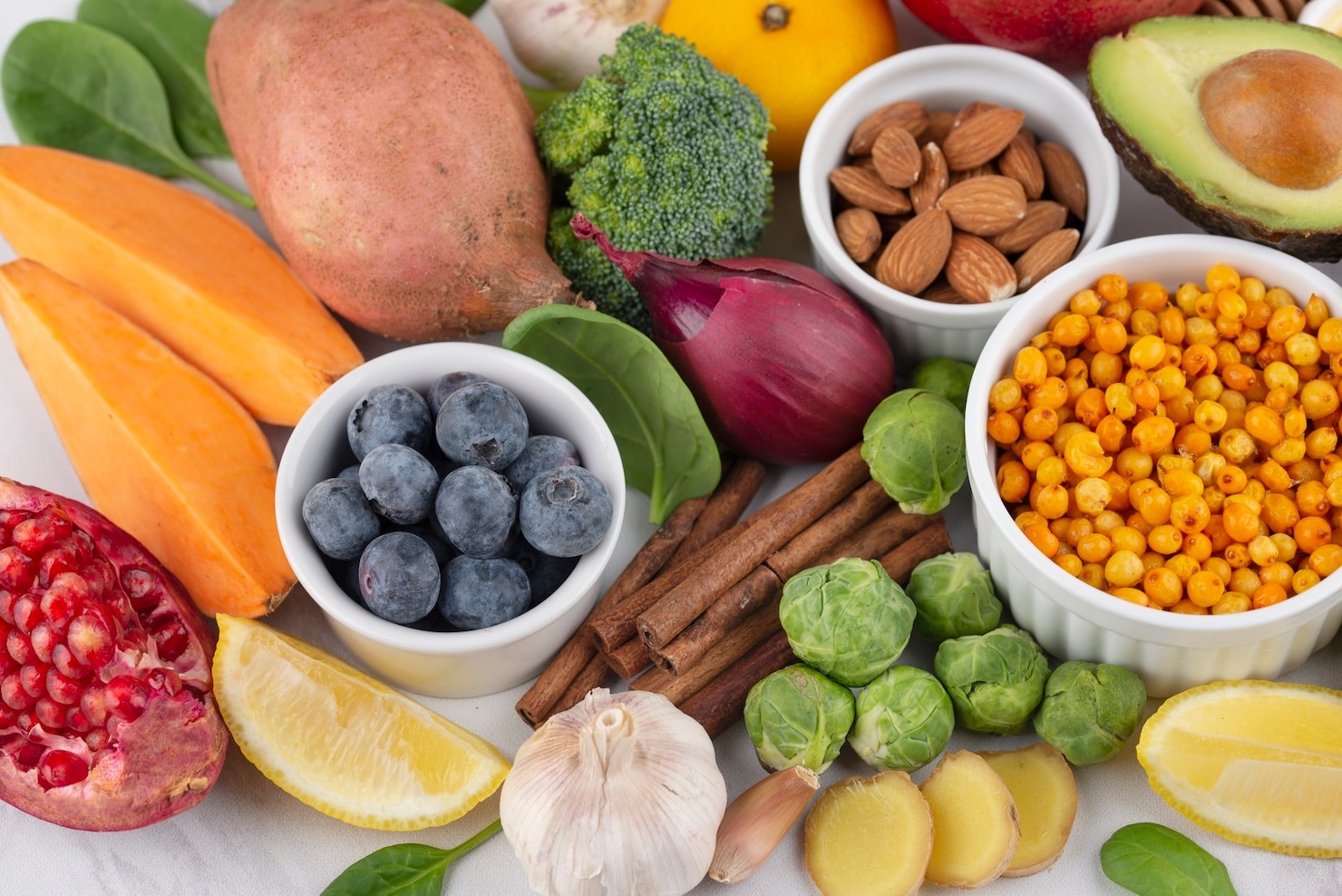As the cold winter months set in, it’s essential to maintain both physical and mental health through proper nutrition. Winter superfoods are packed with nutrients that help boost the immune system, improve energy levels, and support cognitive function. These foods are rich in antioxidants, vitamins, and minerals that combat seasonal fatigue, protect against illnesses, and improve overall well-being.
In this article, we’ll explore the top winter superfoods that can help you build a strong body and mind, ensuring you stay healthy and energized during the colder months.
1. Citrus Fruits: Vitamin C Powerhouses

Citrus fruits like oranges, grapefruits, lemons, and clementines are perfect for winter. They are loaded with vitamin C, which helps support the immune system by increasing the production of white blood cells that fight off infections.
- Benefits for the Body: Citrus fruits promote collagen production, keeping your skin healthy and radiant, even in the harsh winter air. Vitamin C also enhances iron absorption, preventing anemia and boosting energy levels.
- Benefits for the Mind: Vitamin C is crucial for brain function, playing a role in neurotransmitter production and reducing the risk of neurodegenerative diseases.
How to Include Them: Enjoy citrus fruits as a snack, add slices to your water, or use their juice in salad dressings and marinades for a fresh, tangy flavor.
2. Sweet Potatoes: A Nutrient-Dense Comfort Food
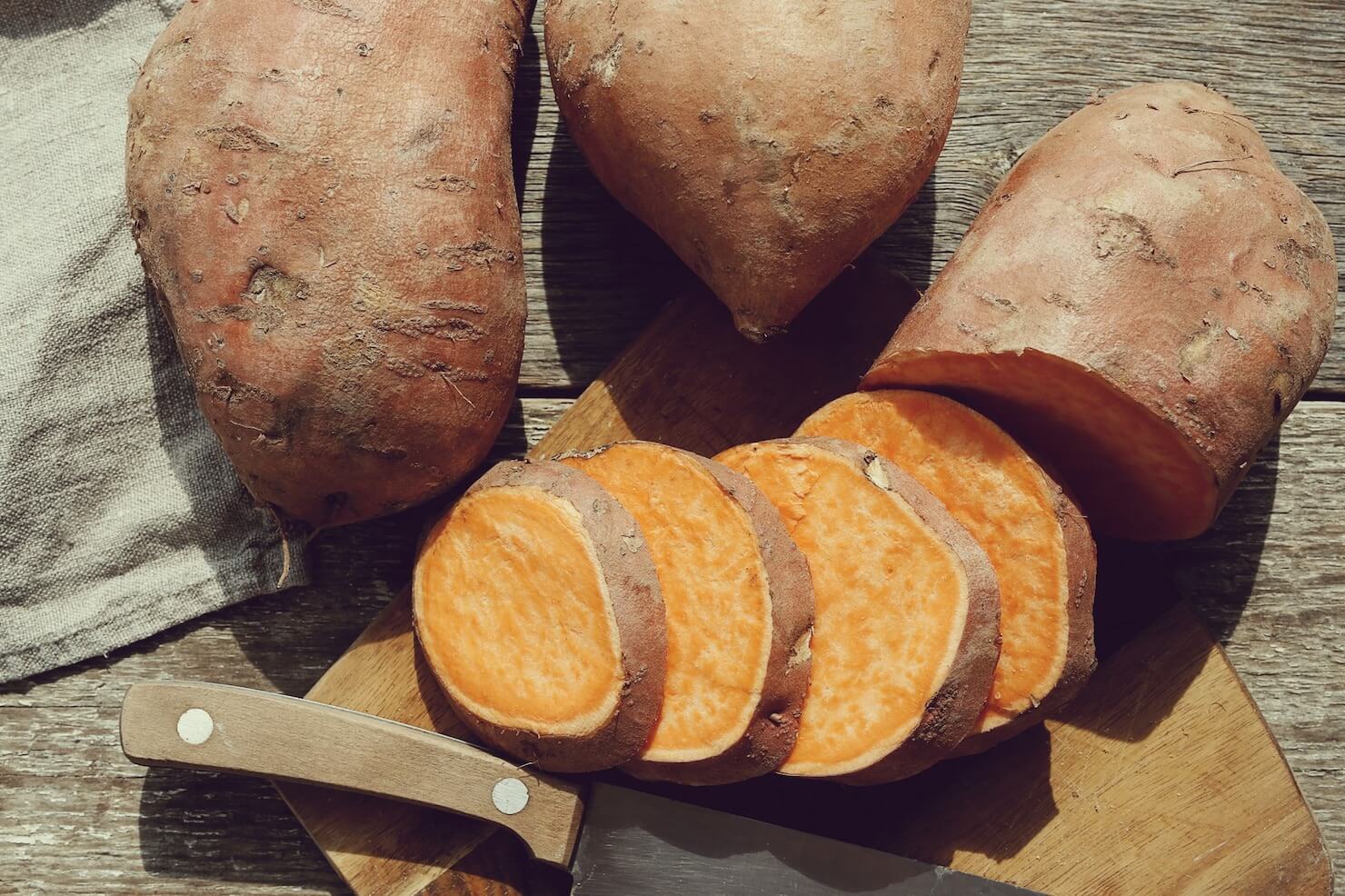
Sweet potatoes are rich in beta-carotene, which the body converts into vitamin A, essential for a healthy immune system, skin, and eyes. These starchy vegetables are also high in fiber, helping with digestion and keeping you full longer during the colder months.
- Benefits for the Body: Sweet potatoes support a strong immune system, protect the skin from dryness, and provide a steady source of energy.
- Benefits for the Mind: The complex carbohydrates in sweet potatoes stabilize blood sugar levels, improving focus and mental clarity. Their high magnesium content helps reduce stress and anxiety.
How to Include Them: Roast or mash sweet potatoes as a side dish, or use them in soups and stews for a hearty winter meal.
3. Dark Leafy Greens: Nutrient Powerhouses
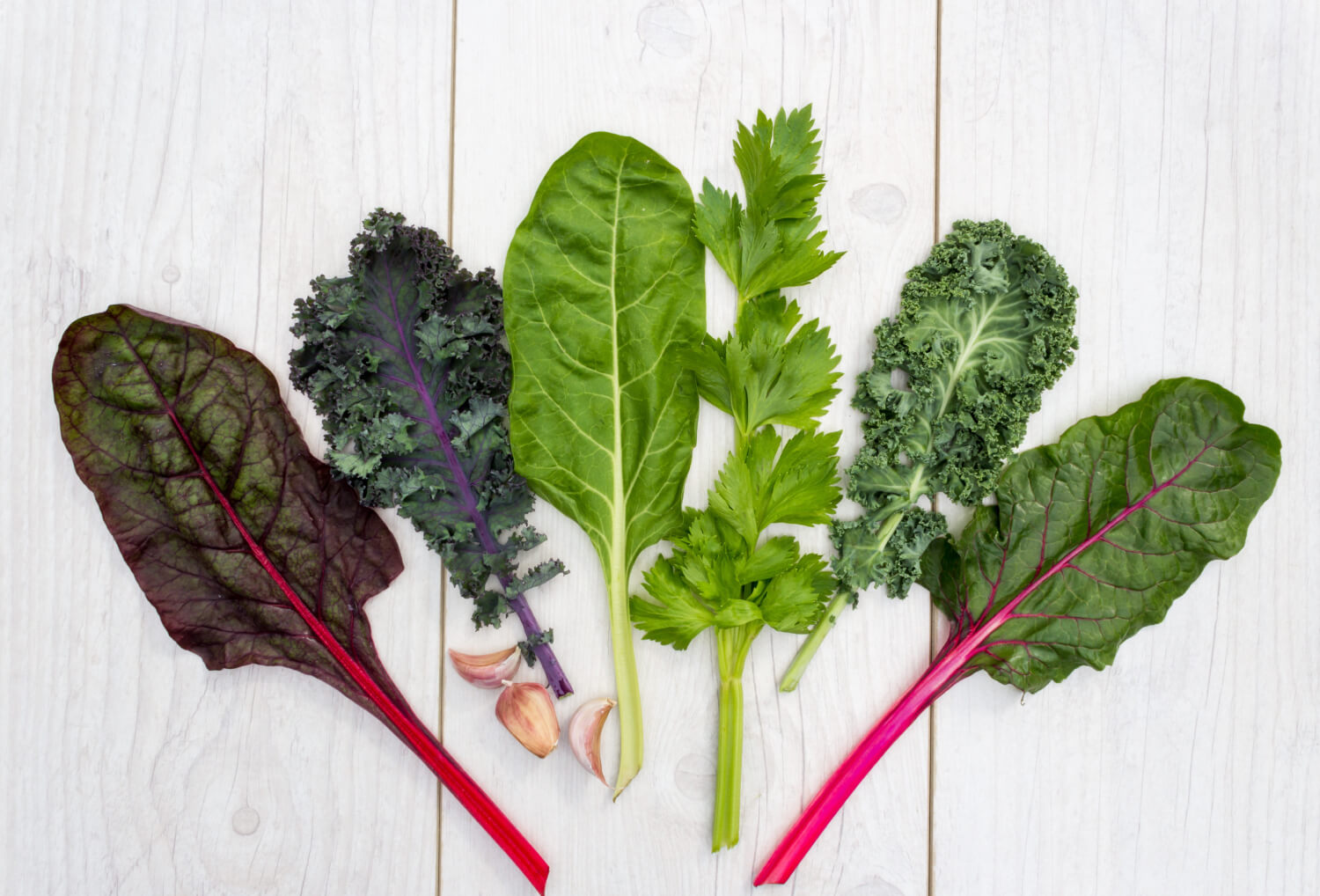
Leafy greens like kale, spinach, and Swiss chard thrive in cold weather and are loaded with essential vitamins and minerals, including iron, calcium, and vitamin K. They also contain antioxidants like lutein and zeaxanthin, which protect the eyes and skin.
- Benefits for the Body: Dark leafy greens are excellent for bone health, cardiovascular function, and detoxification. They help protect your body against inflammation and oxidative stress.
- Benefits for the Mind: These greens are rich in folate, which supports brain health by aiding neurotransmitter function and reducing the risk of depression.
How to Include Them: Sauté greens with garlic for a quick side dish, blend them into smoothies, or add them to soups and salads for a nutritious boost.
4. Pomegranates: Antioxidant-Rich Winter Fruit
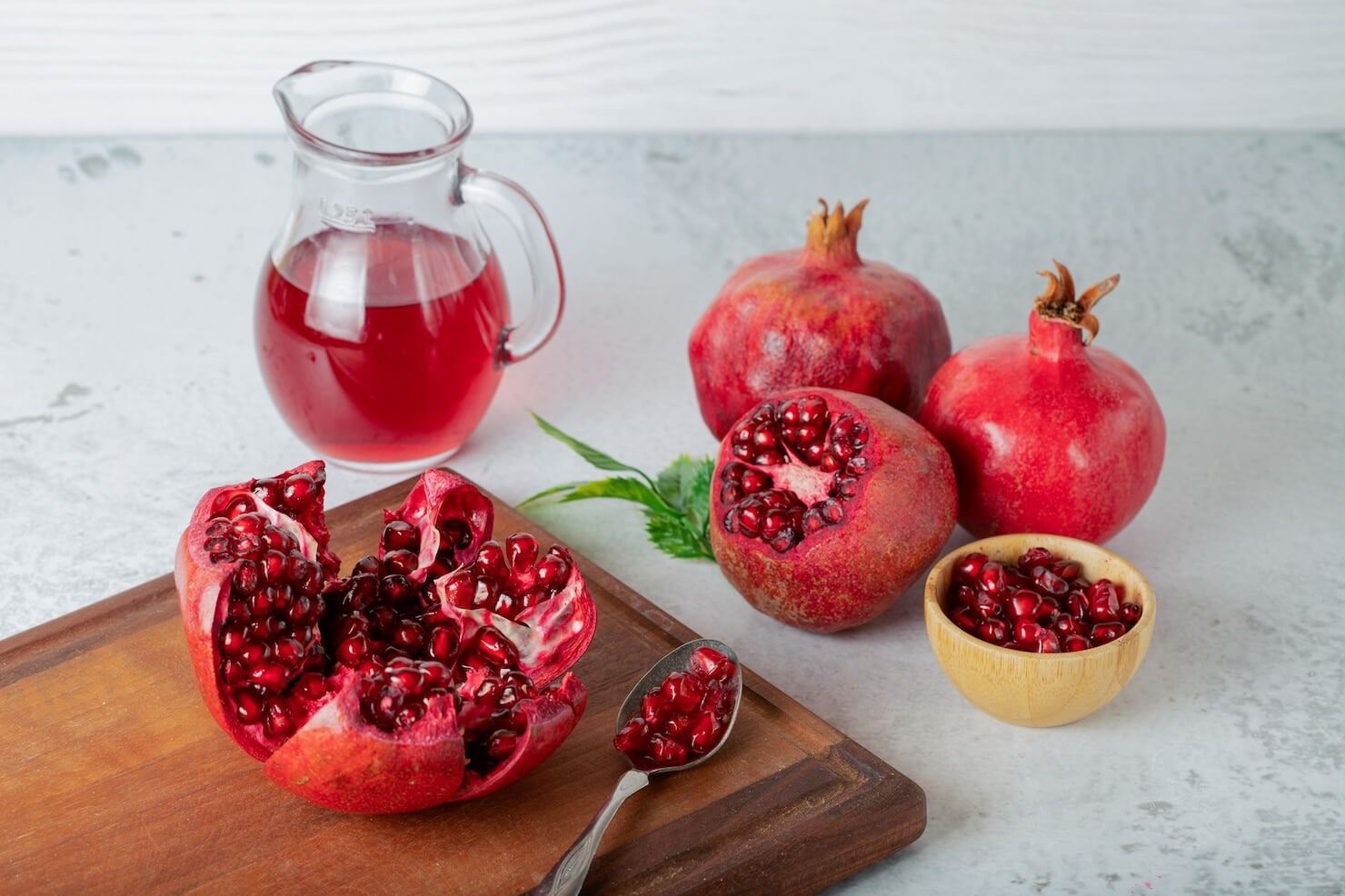
Pomegranates are packed with antioxidants, particularly punicalagins and anthocyanins, which have anti-inflammatory and heart-protective properties. They also contain high levels of vitamin C, potassium, and fiber.
- Benefits for the Body: Pomegranates improve heart health by reducing blood pressure and cholesterol levels. They also have anti-inflammatory effects that help protect against chronic diseases.
- Benefits for the Mind: The antioxidants in pomegranates support cognitive function, protect against memory loss, and reduce oxidative stress in the brain.
How to Include Them: Eat pomegranate seeds as a snack, sprinkle them on salads or yogurt, or use the juice in marinades and smoothies.
5. Oats: The Perfect Winter Grain
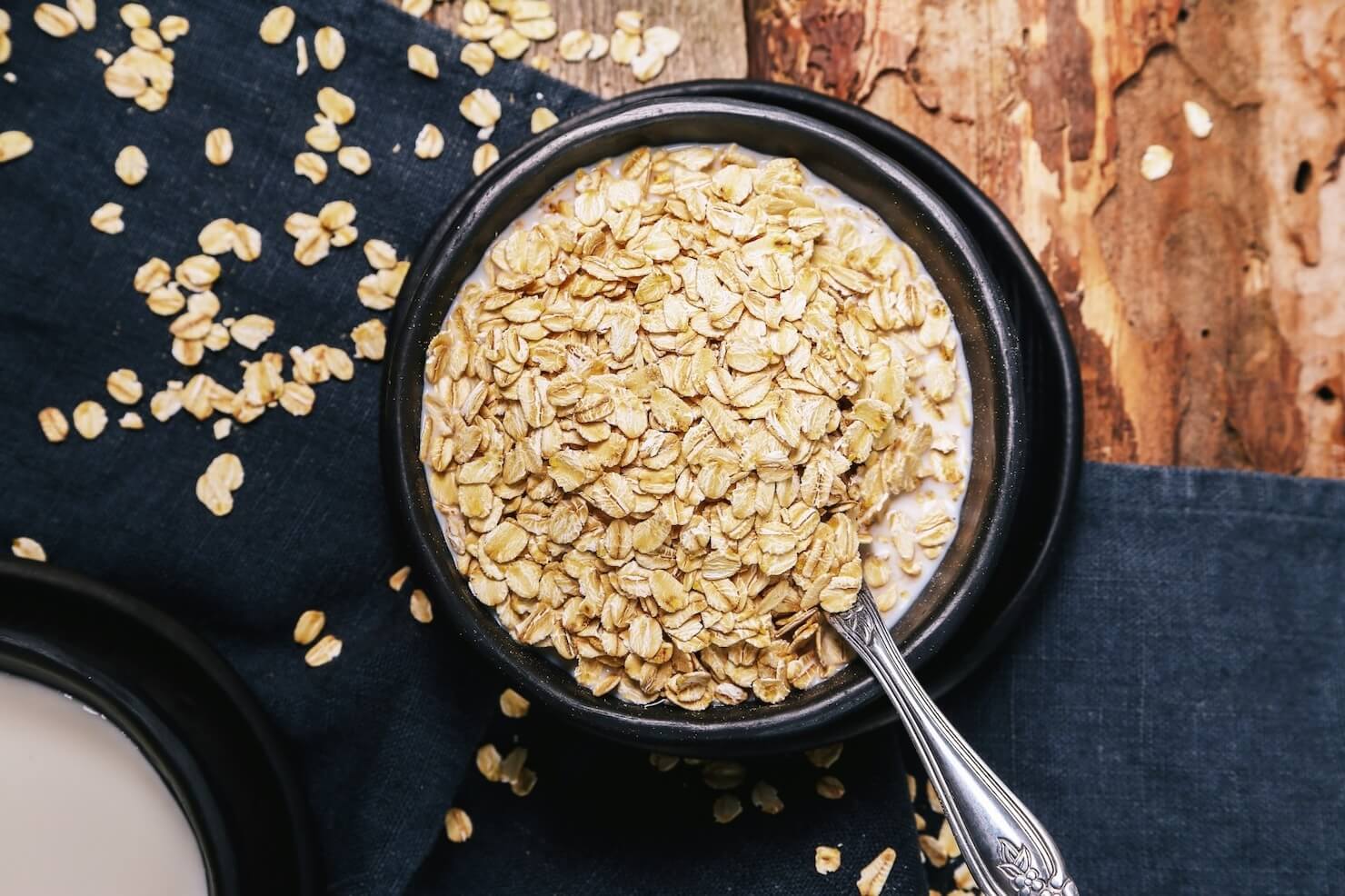
Oats are an excellent source of whole grains, fiber, and protein, making them a perfect breakfast choice during winter. They are rich in beta-glucan, a type of soluble fiber that has been shown to enhance immune function.
- Benefits for the Body: Oats help regulate blood sugar, lower cholesterol levels, and provide long-lasting energy. Their high fiber content supports healthy digestion, especially during the cold months when people tend to be less active.
- Benefits for the Mind: Oats are a great source of B vitamins, which support brain function, reduce stress, and improve mood.
How to Include Them: Prepare a warm bowl of oatmeal with your favorite toppings, or use oats in baking for healthy snacks like granola bars.
6. Ginger: A Warming Superfood
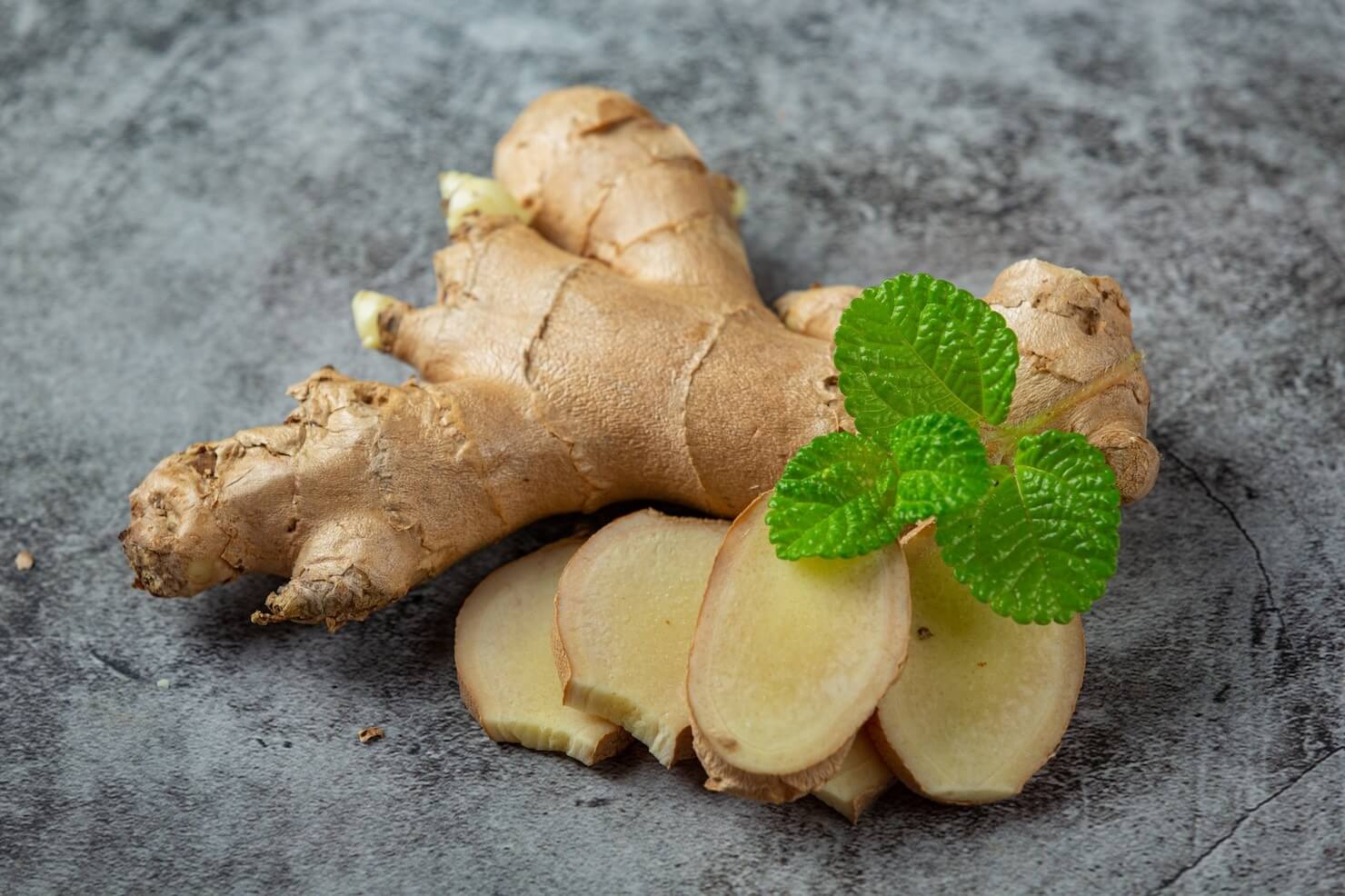
Ginger is a powerful anti-inflammatory and antioxidant root that has been used for centuries to treat a variety of ailments. In the winter, it can help boost circulation, reduce inflammation, and support digestion.
- Benefits for the Body: Ginger is known for its ability to ease nausea, soothe sore muscles, and improve digestion. It also helps to ward off colds and flu, making it a must-have in winter.
- Benefits for the Mind: Ginger’s anti-inflammatory properties may protect against neurodegenerative diseases and improve cognitive function by reducing oxidative stress in the brain.
How to Include It: Add fresh ginger to tea, soups, or stir-fries, or use ground ginger in baked goods for a warming kick.
7. Nuts and Seeds: Protein and Healthy Fats
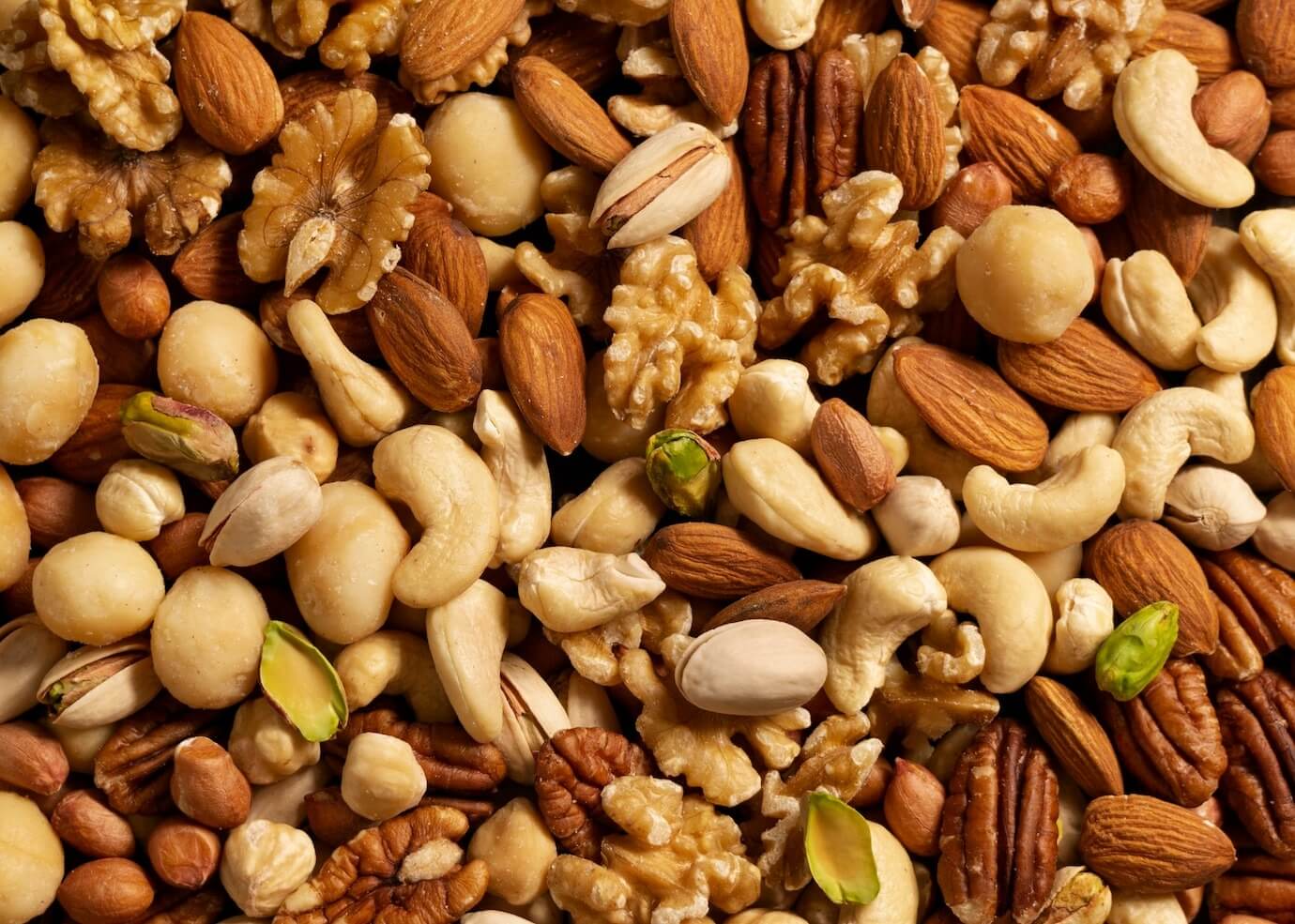
Nuts like almonds, walnuts, and seeds like flaxseeds and chia seeds are packed with healthy fats, protein, fiber, and essential vitamins and minerals like magnesium, vitamin E, and omega-3 fatty acids.
- Benefits for the Body: These nutrient-dense foods help regulate cholesterol levels, support heart health, and promote healthy skin during the winter. Their protein and healthy fats provide sustained energy.
- Benefits for the Mind: Omega-3 fatty acids in nuts and seeds support brain health by reducing inflammation and promoting cognitive function. They also help improve mood and reduce symptoms of depression.
How to Include Them: Add nuts and seeds to smoothies, oatmeal, or salads, or snack on them throughout the day for a nutrient boost.
8. Garlic: The Immune System Booster
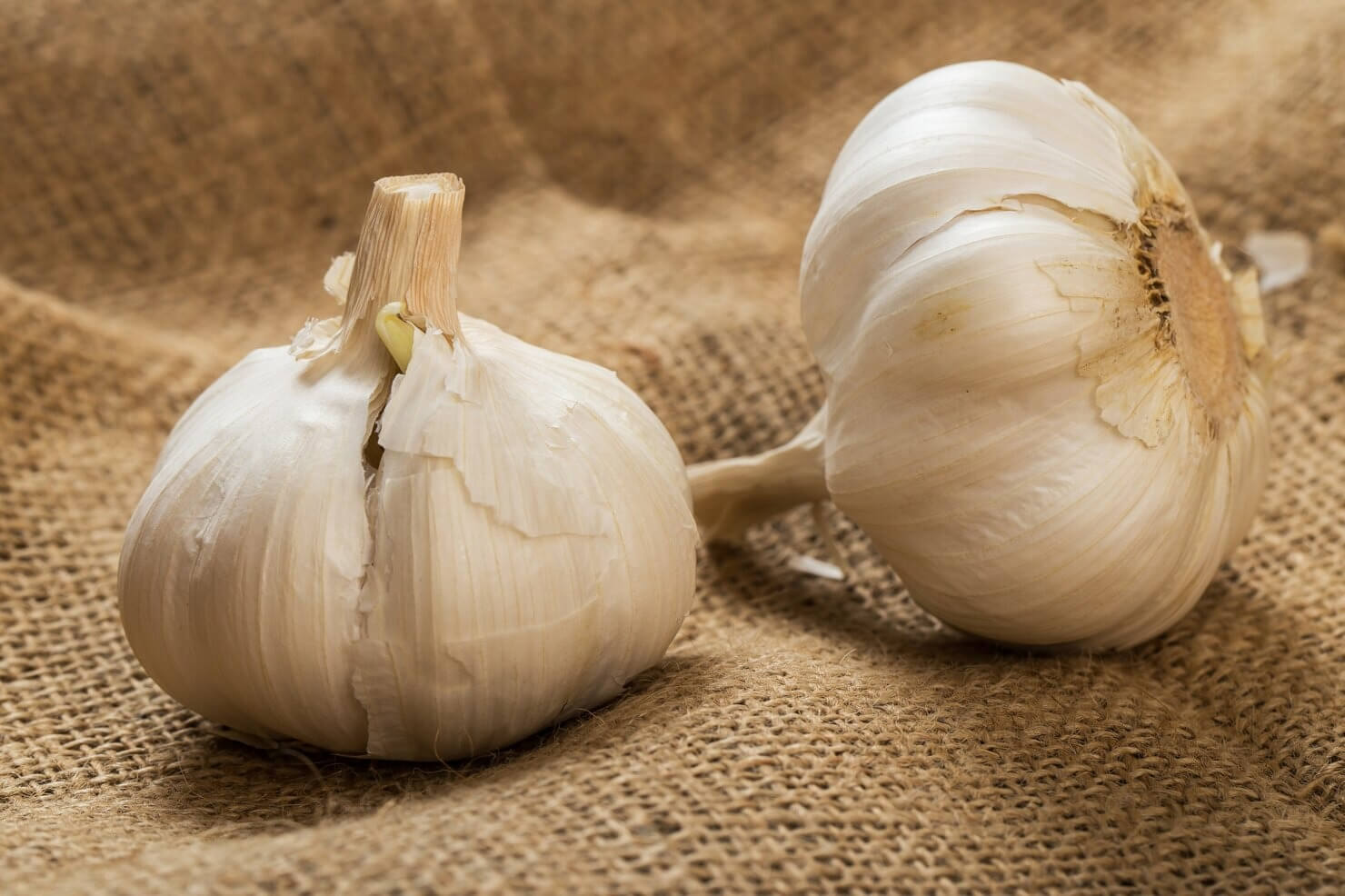
Garlic is well-known for its immune-boosting properties, thanks to its high levels of sulfur compounds like allicin. It has been used for centuries to fight infections, reduce inflammation, and improve heart health.
- Benefits for the Body: Garlic strengthens the immune system, reduces the risk of colds and flu, and improves cardiovascular health by lowering blood pressure and cholesterol.
- Benefits for the Mind: The antioxidants in garlic protect the brain from oxidative stress and reduce the risk of age-related cognitive decline.
How to Include It: Add garlic to soups, stews, or stir-fries for added flavor and health benefits, or roast it and spread it on whole-grain bread.
9. Turmeric: The Golden Superfood

Turmeric is a spice known for its potent anti-inflammatory and antioxidant properties, mainly due to its active compound, curcumin. It helps to protect the body from chronic diseases and is especially beneficial during the winter months when inflammation levels tend to rise.
- Benefits for the Body: Turmeric helps to reduce inflammation, supports joint health, and boosts the immune system. Its antioxidant properties also help to protect the skin from environmental damage.
- Benefits for the Mind: Curcumin in turmeric improves brain function by increasing levels of brain-derived neurotrophic factor (BDNF), which supports memory and learning.
How to Include It: Add turmeric to soups, stews, or golden milk lattes, or sprinkle it into scrambled eggs for a warming, health-boosting touch.
10. Brussels Sprouts: Winter’s Nutrient Powerhouse
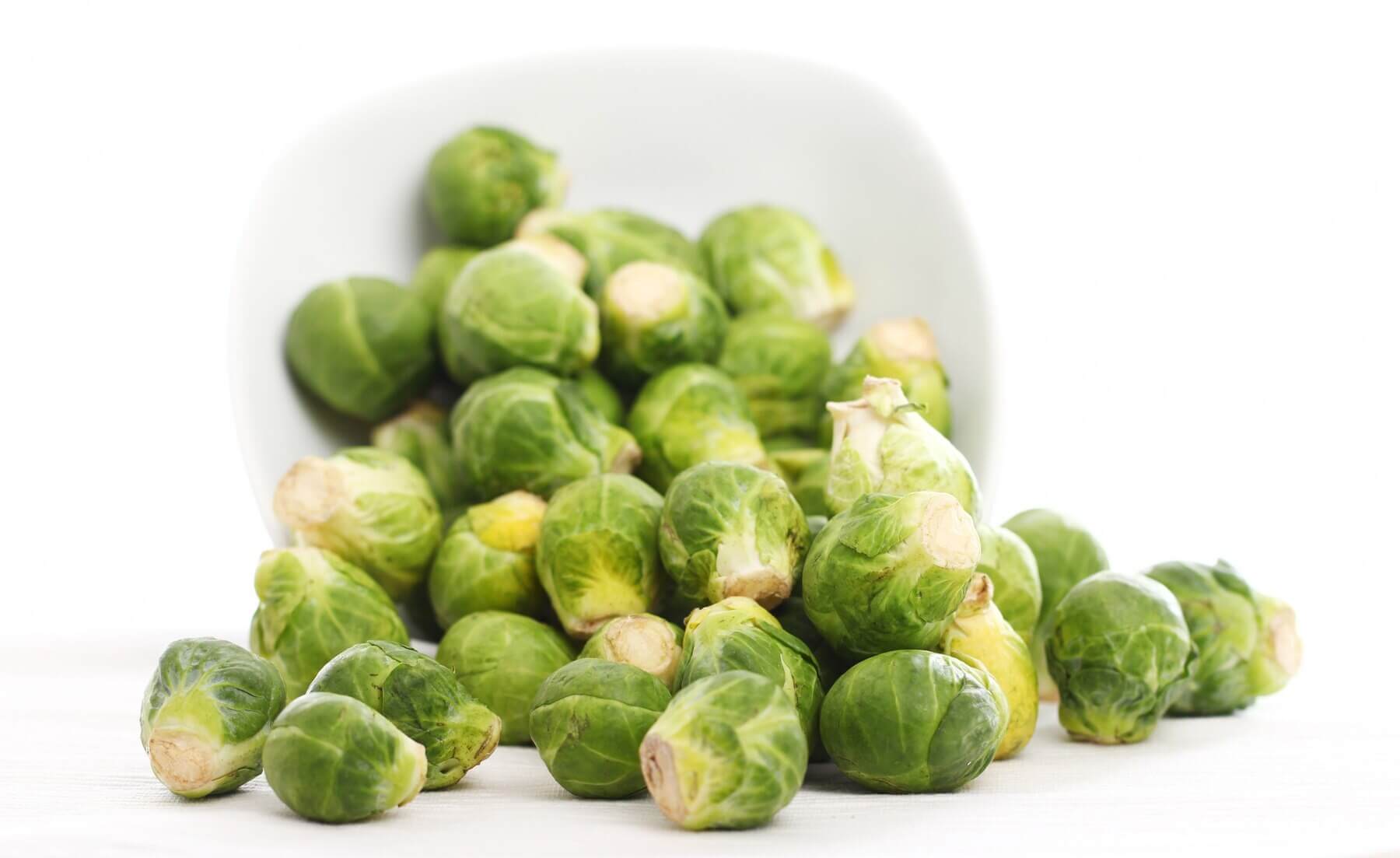
Brussels sprouts are rich in fiber, vitamins C and K, and antioxidants. These small, cruciferous vegetables are particularly beneficial during the winter months when the body needs extra immune support.
- Benefits for the Body: Brussels sprouts improve digestion, support immune function, and promote healthy skin. They are also excellent for heart health due to their high levels of fiber and potassium.
- Benefits for the Mind: The high levels of vitamin C and antioxidants in Brussels sprouts support brain health by reducing inflammation and protecting against cognitive decline.
How to Include Them: Roast Brussels sprouts with olive oil and garlic for a delicious side dish, or add them to salads and grain bowls for extra nutrients.
Conclusion
Incorporating these winter superfoods into your diet will not only help you stay healthy during the colder months but also provide long-lasting energy and support both your body and mind. These nutrient-dense foods boost the immune system, protect against seasonal illnesses, improve mental clarity, and keep your skin glowing despite the harsh winter conditions.
Frequently Asked Questions (FAQs)
Q1: How can I add more superfoods to my winter diet?
Start by incorporating one or two superfoods into your meals each day. You can add leafy greens to your salads, snack on citrus fruits, or include garlic and turmeric in your cooking for a nutrient boost.
Q2: What is the best way to prevent dry skin during the winter?
In addition to eating superfoods that promote skin health, like sweet potatoes and nuts, use a thick moisturizer, drink plenty of water, and consider using a humidifier in your home to maintain moisture in the air.
Q3: Are winter superfoods different from other seasonal superfoods?
Winter superfoods are often rich in vitamins, antioxidants, and immune-boosting properties to help combat the challenges of cold weather, such as dry skin, seasonal colds, and low energy levels. They are typically heartier, warming foods that provide lasting energy.
Q4: Can superfoods help with winter fatigue?
Yes, winter superfoods like oats, nuts, and citrus fruits are packed with nutrients that help maintain energy levels, improve mood, and combat winter fatigue by stabilizing blood sugar levels and reducing inflammation.
Q5: How does eating seasonally benefit overall health?
Eating seasonally ensures that you get the freshest produce with the highest nutrient content. Seasonal foods are often more affordable, tastier, and better for the environment due to shorter transportation times.

